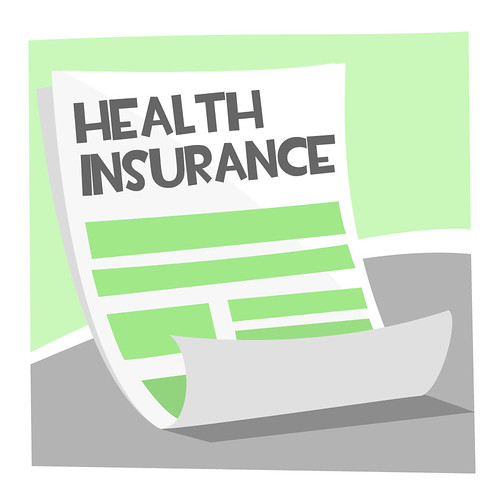It is normal for you to feel a bit of uncertainty when it comes to your health insurance, regardless of whether it is your first insurance policy, you are looking to pair some of your existing policies together, or you are simply seeking lower rates or more coverage. This article is filled with useful tips to guide you in choosing the right policy and avoid expensive mistakes.
When you are choosing an employer-sponsored healthcare insurance plan, account for the health condition of yourself and your family. If you have no current medical issues and are in good physical shape, a cheaper premium and higher deductible may be the right choice for you. While that may be cheaper upfront, it could be risky if problems start developing.
When you are considering getting personal health insurance make sure that you sit down and figure all of the costs. It is important for you to take the time to understand exactly what your co-pays, premiums and deductibles are when you have health insurance.
Open Enrollment
During open enrollment, assess your insurance needs. Life changes quickly and today’s coverage may not meet your needs due to adding someone to your family. Open enrollment allows you time to change vision and dental insurance if your employer provides these options.
Purchasing insurance on your own often results in higher policy costs compared to group plans offered through an employer. You might have to get a smaller coverage or have a higher deductible, and for some people it will be both. Take some time to research companies so that you can get the best rates and coverage.
Most likely there will be loopholes in your health insurance plan. Read every page of the policy, so you won’t be surprised when the company tells you that something isn’t covered. There will be things you have to pay for yourself, and knowing what these are ahead of time will save you the headaches.
If you receive a telephone call from a health insurance provider during the application process, do not volunteer information. Simply respond to whatever questions they ask. If you give them additional information they did not ask for, they will record it, and could find a way to raise your rates or possibly deny you for coverage.
Research different types of health plans, and decide on the one that best fits your needs. Select either a POS, PPO or HMO. Each one has different options, so check them out prior to buying from a company. An important consideration is whether or not you want to keep your current primary care physician, and if you do you should ask him which insurance company he is affiliated with.
Read your policy to ensure you know exactly which prescriptions are covered and which are not. This list will be different every year or so, so make sure you check it when you enroll again to avoid a surprise at the pharmacy when filling your medication.
It’s cheaper for the company you work for to get group health insurance than it is for you to purchase your own, so your premiums through your employer’s plan will be cheaper, even if your coverage is the same. If you want to save money, you can join an organization or group that offers its members insurance.
Anyone who suffers from a pre-existing health condition should educate themselves before deciding on an insurance company. Your pre-existing condition could cause some providers to deny you coverage and others to charge you exorbitant prices. Start your research by reading the article below, and you’ll be equipped to have the best health care experience that you can.
Keep track of all the expenses that go into your medical coverage, and even outside of it, when you are getting ready to switch health insurance policies. Be aware of out of pocket costs for coverage and deductibles and who they apply to within your family.
Your enrollment, or even worse your claim, could be rejected due to incorrect information being provided. Make sure you review your enrollment form before sending it.
Talk to your doctor about doubling the usual dosage in order to save money. It is not uncommon for a pill that is a higher dose to be the same price as 1 pill of a lower dose. The savings will offset the cost of a pill splitter in a relatively short order.
Chronic Diseases
It can be difficult to get health insurance coverage if you are afflicted with a pre-existing condition. Vegetarian diets can reduce your risk of some of these conditions. Poor eating habits, and overeating, have been proven to cause chronic diseases. It is very expensive to acquire treatment for these diseases. By eating a vegetarian diet regularly, you can avoid chronic diseases. Insurers are beginning to understand this. Not only can this diet save your life, but it can reduce health care costs.
The knowledge you’ve just learned should help you have the confidence to make the correct insurance choices. This way, you know your money is being spent well and you have the comfort of knowing you and your family are protected.

